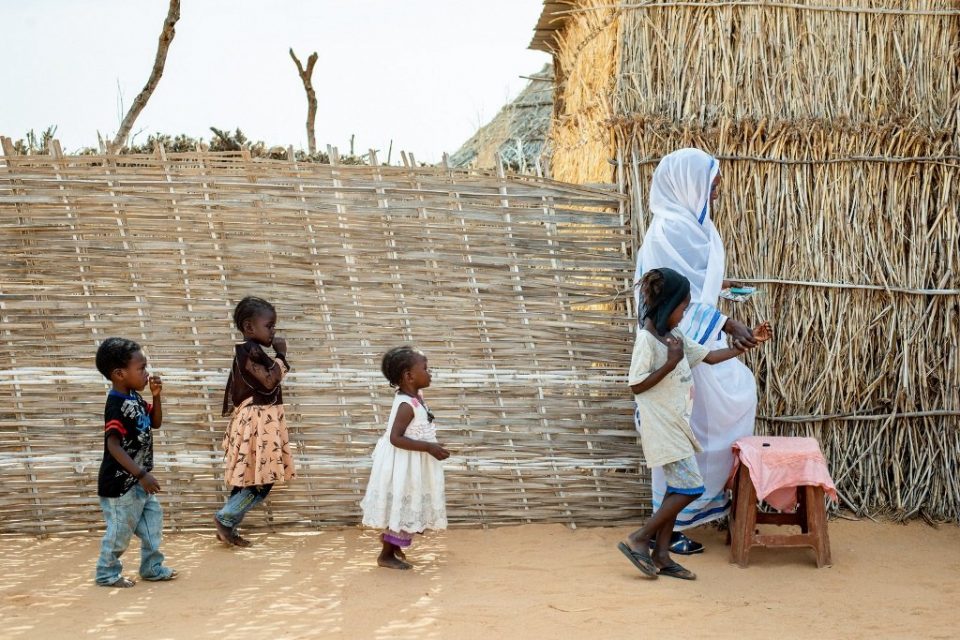Delegates at the World Health Assembly have supported recommendations on how to strengthen policies to prevent, control and treat noncommunicable diseases (NCDs), such as cancers, diabetes, heart, and lung diseases, for people living in humanitarian emergencies.
People living with NCDs in humanitarian emergencies need special attention and investment through a multi-sectoral all-hazards approach. This includes ensuring that NCDs are systematically included at every stage of the emergency cycle, across preparedness, response and recovery.
The United Nations Office for the Coordination of Humanitarian Affairs estimated that 235 million people would need humanitarian assistance and protection in 2021. The number of people living with NCDs in natural and human-caused disasters is growing. This is particularly pertinent for people living with NCDs in Ukraine: in 2019, 92% of all deaths in Ukraine – more than half a million people – were the result of an NCD, with many more people still needing services for their NCD treatment and care.
Attention to NCDs in humanitarian settings, as well as coordination among United Nations agencies, humanitarian responders and donors, is growing. Simultaneously, research on NCDs and COVID-19 and more broadly on humanitarian settings is increasing in scope and quality, providing a stronger evidence basis to inform policy and programme design.
NCDs require particular attention during health emergencies
NCDs have common characteristics that make affected people more vulnerable during an emergency. Emergencies appear to increase the risk of NCD-related complications, such as heart attacks and strokes, relative to normal pre-emergency circumstances. At the same time, COVID-19 continues to have a disproportionate impact on people living with or at risk of NCDs, including disadvantaged groups such as forcibly displaced and refugee populations in humanitarian contexts.
Often a consequence of health emergencies, the disruptions of essential NCD health services due to COVID-19 have been widespread. This is due to the shortage of medicines, staff, diagnostics, and public transport services, among other constraints. The recommendations build on operational guidance released by WHO in March 2020 on maintaining essential services during the outbreak, to support countries in mitigating the disruption of essential health services.
Since 2017, WHO has deployed more than 7500 ‘NCD kits’ in over 20 countries and humanitarian hubs worldwide, including during the pandemic. Each kit covers 10,000 people for three months, helping address part of the unmet needs for NCD essential medicines and supplies during emergencies. At an annual value of US$ 3.6 million, it has become one of the most procured WHO standard emergency health kits.
WHO is also supporting people living with NCDs in recent humanitarian emergencies. In Ukraine, this has included mapping the care continuity for adults and children living with cancer, work in Poland on the procurement of essential NCD medicines, and supporting a health system review in Moldova to monitor refugee health burden and bottlenecks in the country. Also recently, WHO has also deployed technical support in Armenia, to rapidly assess the rehabilitation situation and support the establishment of a rehabilitation coordination platform in Nagorno Karabakh.
The Annex makes a full list of recommendations, both for strengthening NCD-related responses to COVID-19, and for acting on all hazards beyond the pandemic. Actions for the WHO Secretariat include review current WHO NCD-related responses in countries in emergencies to strategically improve technical assistance, develop a prioritized essential NCD health package to be guaranteed in health emergencies, and to strengthen WHO’s normative role and technical capacity.
“Today’s decision recognizes the need to strengthen NCD responses, including to the COVID-19 pandemic, conflicts, and the health emergencies of tomorrow, will provide much-needed benefits to support people living with NCDs affected by humanitarian emergencies.
As we see in Ukraine, the toll of conflict on people living with NCDs is forcing families to make agonizing decisions about how to try and access the treatment and care they need. We must support people living with NCDs, by guaranteeing that NCDs are prioritized in emergency preparedness and response planning”, said Dr Bente Mikkelsen, Director for Noncommunicable Diseases, World Health Organization.


